Sara Bareilles: ‘If I were gay, I’d shout it from the mountaintops’
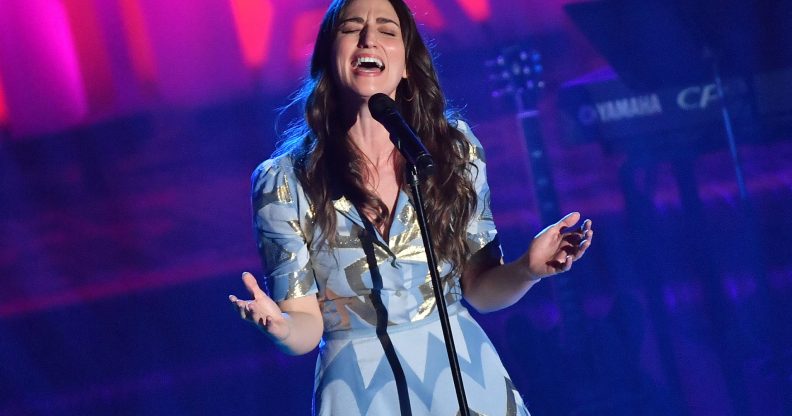
Bareilles is working on a new pop album (ANGELA WEISS/AFP/Getty)
Sara Bareilles has told PinkNews that the tidal wave of speculation over her sexuality which she set off earlier this year was a complete accident.
The Emmy, Grammy and Tony-nominated singer-songwriter, who was in London to promote her musical Waitress ahead of its West End debut in February, also criticised the Catholic Church and Donald Trump in the interview.
Speaking to PinkNews after she performed at a private press event under bisexual lighting, the “Brave” singer addressed the moment in April when she made what fans thought was a stunning announcement.
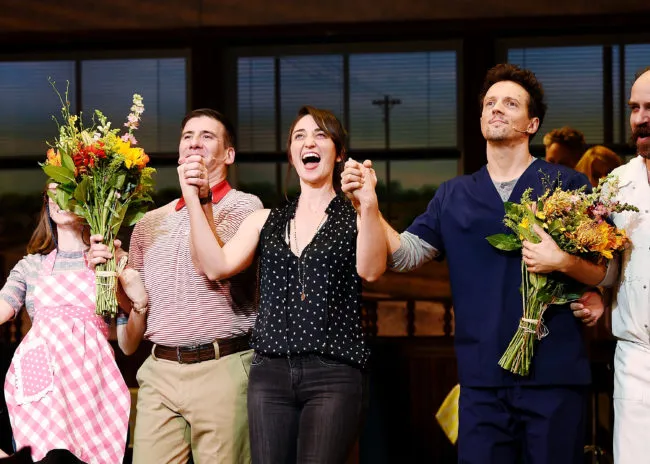
When a fan asked their followers about “Love Song,” the track which launched Bareilles to prominence, the singer quote-tweeted the post and added: “it was never about a he. “
Laughing at the memory, Bareilles explained: “I didn’t mean to start such a firestorm!
“Oh my gosh, I felt bad that I had misled anybody. I felt like if I were, I would be shouting it from the mountaintops.
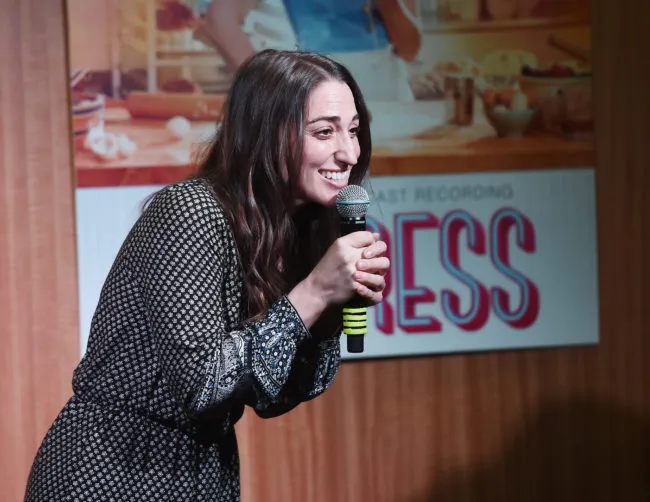
“But no, unfortunately for all my wannabe lesbian lovers out there, no, I am not,” she clarified.
“I said it thinking it was going to be more obvious it was about the record label, but I thought it was so entertaining to watch the response to it. It was awesome.”
This emphasis on optimism and honesty runs through Bareilles’ work — including her soon-to-be-released first pop album in five years — which is largely autobiographical, and her public pronouncements.
During the press event, she admitted that if she’d known the weight of work involved with taking on Waitress—which has run for two-and-a-half years on Broadway—she would’ve been too intimidated to say yes, and admitted with no hesitation that she re-wrote the opening song, “What’s Inside,” 18 times.
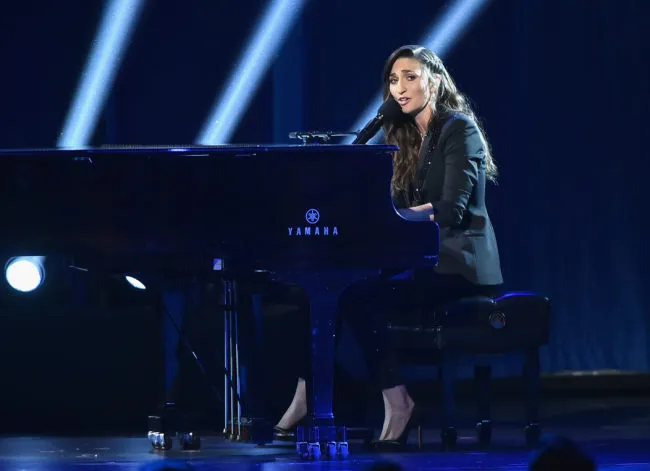
The singer also revealed that the show, which is the first on Broadway to feature an all-female creative team, was “the great love of my life.”
Bareilles couples this commitment to honesty with a genuine enthusiasm that overflows when she talks about the LGBT+ community.
Her 2013 song “Brave,” which she wrote for a friend who was struggling with coming out, has been used in countless same-sex wedding proposals and first dances, which she said was “incredible.
“It’s my honour and my privilege to be an ally—someone who uses whatever platform I have to help articulate things that don’t get said enough.
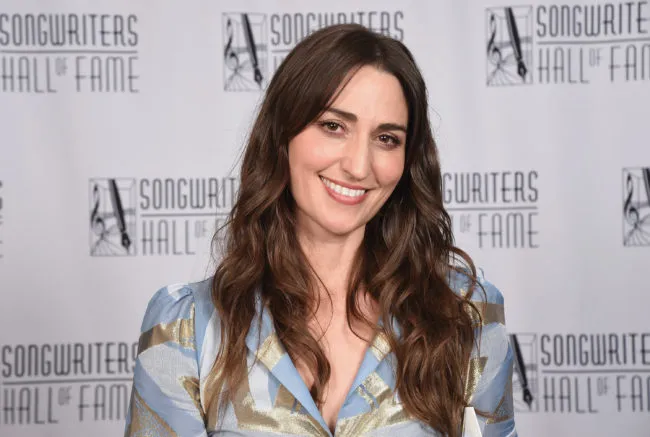
“I was very lucky to be embraced and exposed to the LGBTQ community from a really young age, so it’s just—that’s my community, so why wouldn’t I want to step forward and embrace and embolden their message and their words?
“Hopefully I do it respectfully and always speak on behalf of people, but always while trying to learn as much as I can and offer whatever I can to be a soldier of love.”
The Californian singer, who revealed that her favourite musical theatre karaoke song was “I Don’t Know How to Love Him,” which she performed earlier this year during NBC’s live Jesus Christ Superstar, said that many in the Catholic Church could do with placing more importance on love.
Bareilles grew up in a Catholic family which emphasised acceptance and compassion, values which were abandoned by the more than 300 priests in Pennsylvania who, last month, were found to have raped and sexually abused thousands of boys and girls.
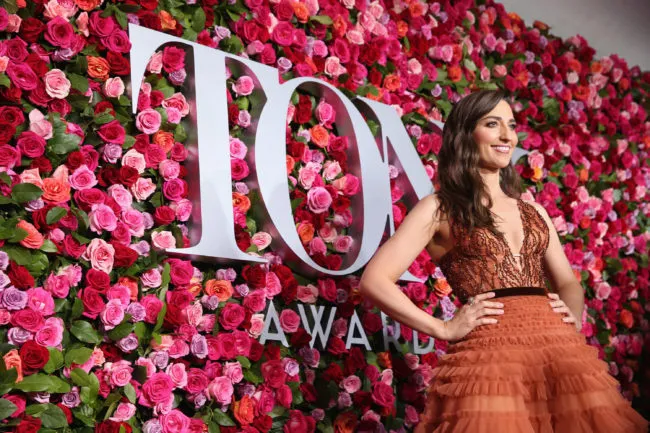
This led some figures in the Church, including US Cardinal Raymond Burke, to blame the spread of “homosexual culture” for the priests’ actions, while one priest in Chicago was removed this week after cutting up and burning an LGBT+ Pride flag.
“We’re watching the effects of where Catholicism needs to do a little evolution,” said the star. “I think that sometimes there are these hard and fast rules that don’t reflect the consciousness of the world anymore.
“I understand people’s reverence for legacy and tradition, but I really believe in the more fundamental truth of what I think Catholicism is built around, the golden rule that Christianity is built around.”
That rule, she said, was: “Love each other. Period. Love each other. No judgment. It’s not my place to judge anything.
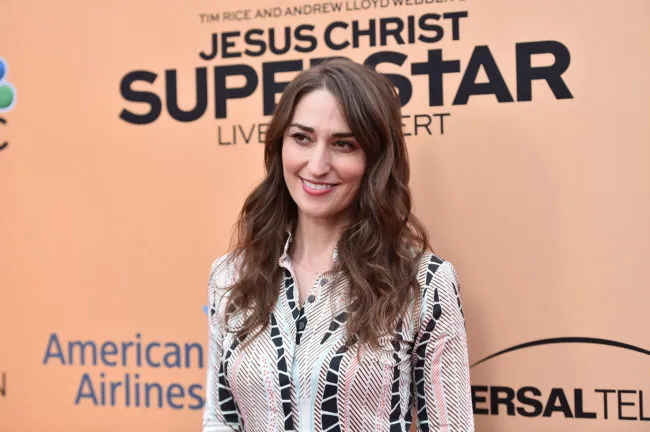
“I don’t have judgment about it, but for those people who do, I just really think love is bigger than anything else, and that’s the torch I want to burn.”
When asked whether Trump and his administration could learn a thing or two from this sentiment, she lashed out at the president for creating a culture of fear, saying: “I think it’s a really challenging time for the world.
“Unfortunately, the main tool of this administration seems to be fear. They incite and prey on people’s vulnerabilities by fanning the flames of fear. It’s an old tactic that’s worked a million times.”
But, she said, outrage of the likes found on Twitter was not the answer.
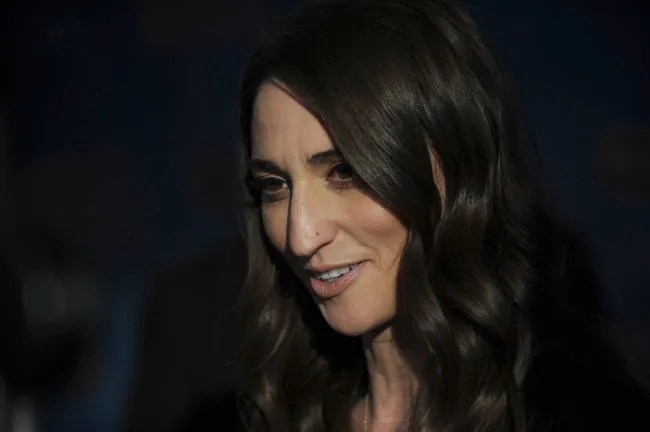
“I’m not sure anger is the best response. I’m more interested in being a problem-solver,” she explained.
“It does make me angry, but I want to be channelling my energy towards problem-solving and being someone who’s energised towards a solution and encouraging compassion and honesty and vulnerability and advocacy.
“That’s where I want to spend my energy, because I think especially in online communities, it’s really easy to just be combative, and I don’t believe in that, as a fundamental methodology.”
For queer people currently being targeted by the Trump administration’s attempts to ban transgender people from the military and undermine LGBT+ rights in the name of religious liberty, she said: “Lean into your communities and know that there are safe spaces.
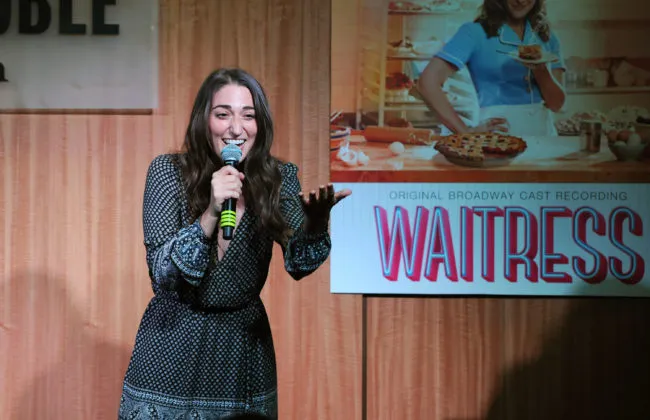
“Community organising is definitely a huge and beautiful tool for making great change, and there are allies, people who are ready to stand and be advocates.”
And what message should these advocates shout from the mountaintops? Why, love, of course.
“I think love is the answer for absolutely everything,” said Bareilles.
“It’s Jesus’s message, it’s Buddha’s message, it’s Muhammad’s message. Love is the answer.”

